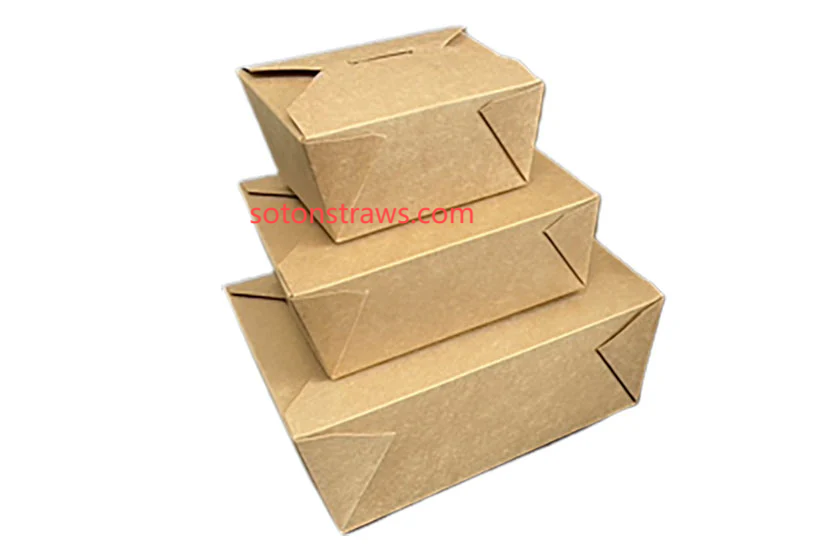Soton Cracks the Code: Truth Behind Disposable Kraft Box Symbols!

Navigating the world of takeout packaging can feel like deciphering hieroglyphics, especially concerning its environmental claims. Symbols and terms on a disposable kraft box – chasing arrows, leaves, numbers – promise recyclability or compostability, but what do they truly mean? Understanding these labels is essential to avoid "greenwashing" and ensure your packaging choice supports genuine sustainability goals. Misinterpretation can lead to well-intentioned boxes ending up in the wrong waste stream, contaminating recycling or failing to compost as hoped.
The Mobius loop (chasing arrows) is widely recognized but often misunderstood. On its own, it merely indicates the packaging is technically capable of being recycled. It doesn't guarantee that recycling facilities in your specific area accept it, especially if the box has a plastic liner. A number inside the loop (like #1 PET or #5 PP) identifies the plastic resin type but, again, doesn't confirm local recyclability, particularly for multi-material items. Compostability claims require even greater scrutiny. Look for specific, verifiable certifications from independent organizations. Certifications like BPI (Biodegradable Products Institute) in North America or TUV Austria's OK Compost INDUSTRIAL (seedling logo) in Europe are key. These mean the entire disposable kraft box, including its liner and any adhesives, has undergone rigorous testing to break down safely within a specific timeframe in industrial composting facilities. Beware of vague terms like "biodegradable" or "degradable" without certification; these lack enforceable standards and often describe processes (like fragmentation into microplastics) that aren't truly environmentally beneficial. Terms like "plant-based" describe material origin, not necessarily end-of-life performance; a plant-based liner might still be persistent if not designed to compost.
True responsibility extends beyond the symbol. Even certified compostable packaging requires access to appropriate industrial composting facilities, which aren't universally available. Consumers need clear instructions (e.g., "Compost Industrially Only") and businesses should consider local infrastructure when choosing packaging. The most responsible kraft box is one designed for the waste management systems where it will be used. This might mean prioritizing recyclability in areas with strong paper recycling (using specific compatible liners) or compostability where industrial composting exists. When certifications and local systems align, compostable kraft boxes can effectively turn waste into nutrient-rich soil, closing the loop. Scrutiny and education are the tools to move beyond confusion to confident, sustainable choices.
Partnering with transparent manufacturers is vital. Soton prioritizes clear communication and certified solutions. Our disposable kraft box range features unambiguous labeling and uses materials validated by recognized compostability standards, empowering responsible disposal. Trust Soton for clarity and commitment.Click https://www.sotonstraws.com/product/biodegradable-straws/st101-paper-straws/ to reading more information.







